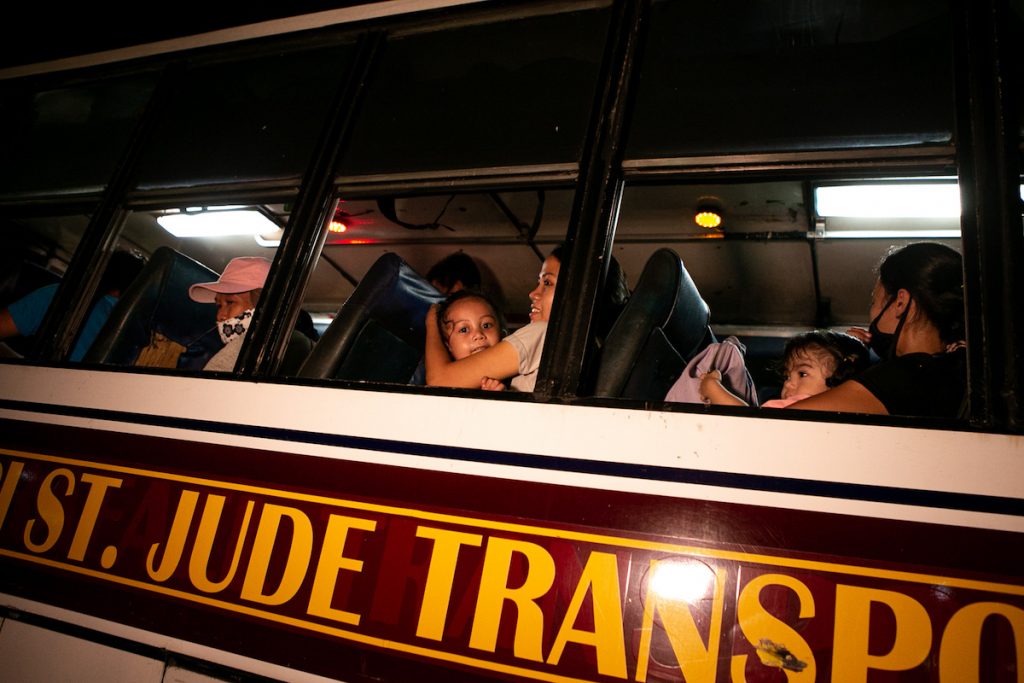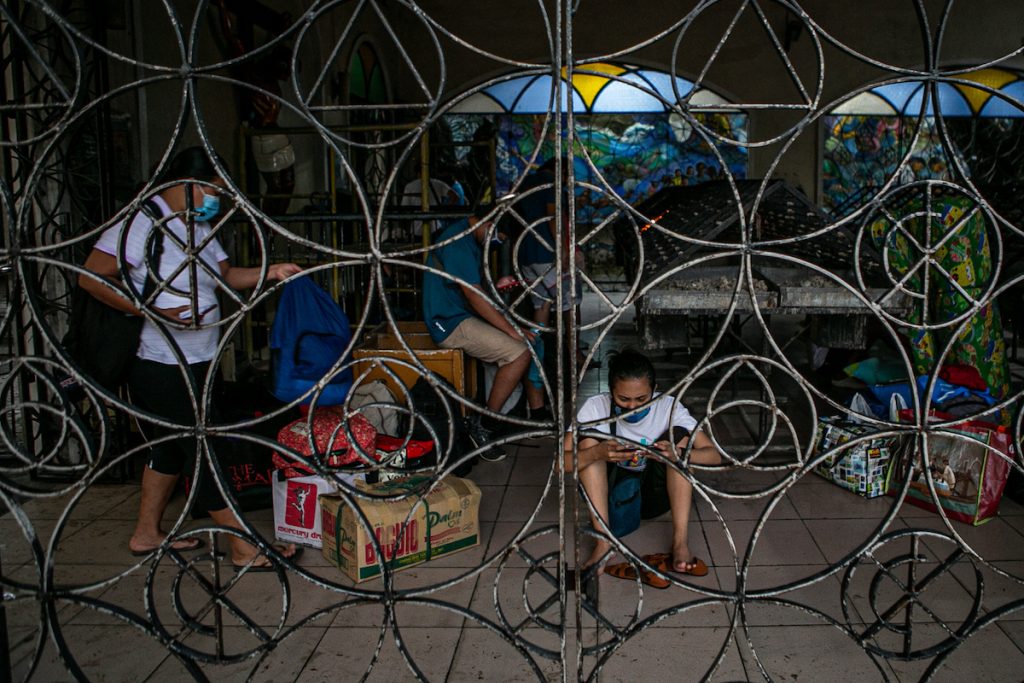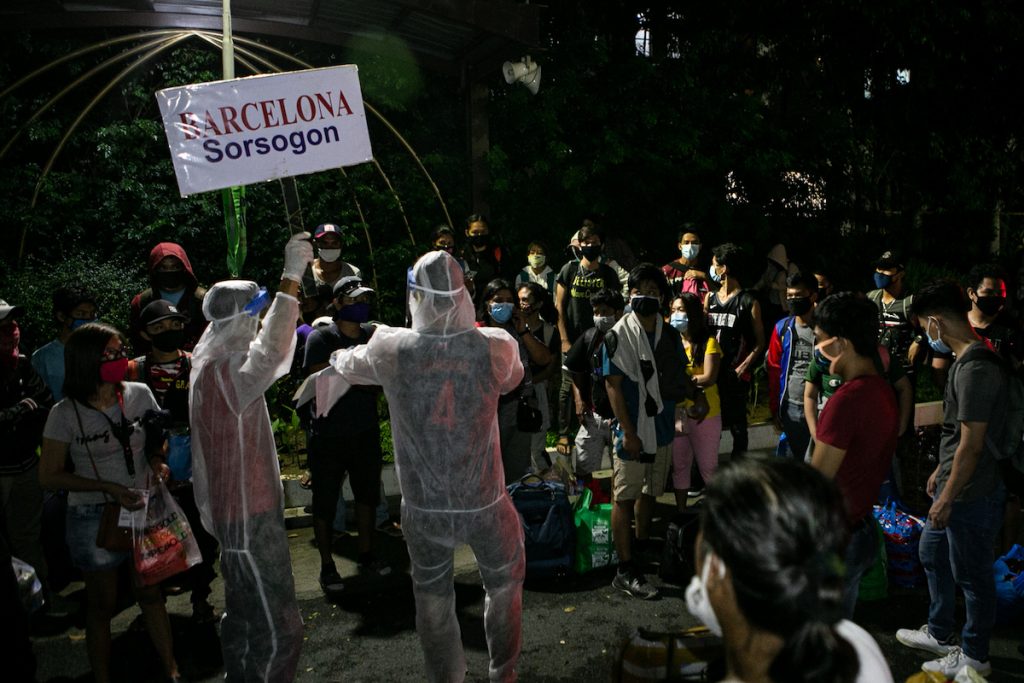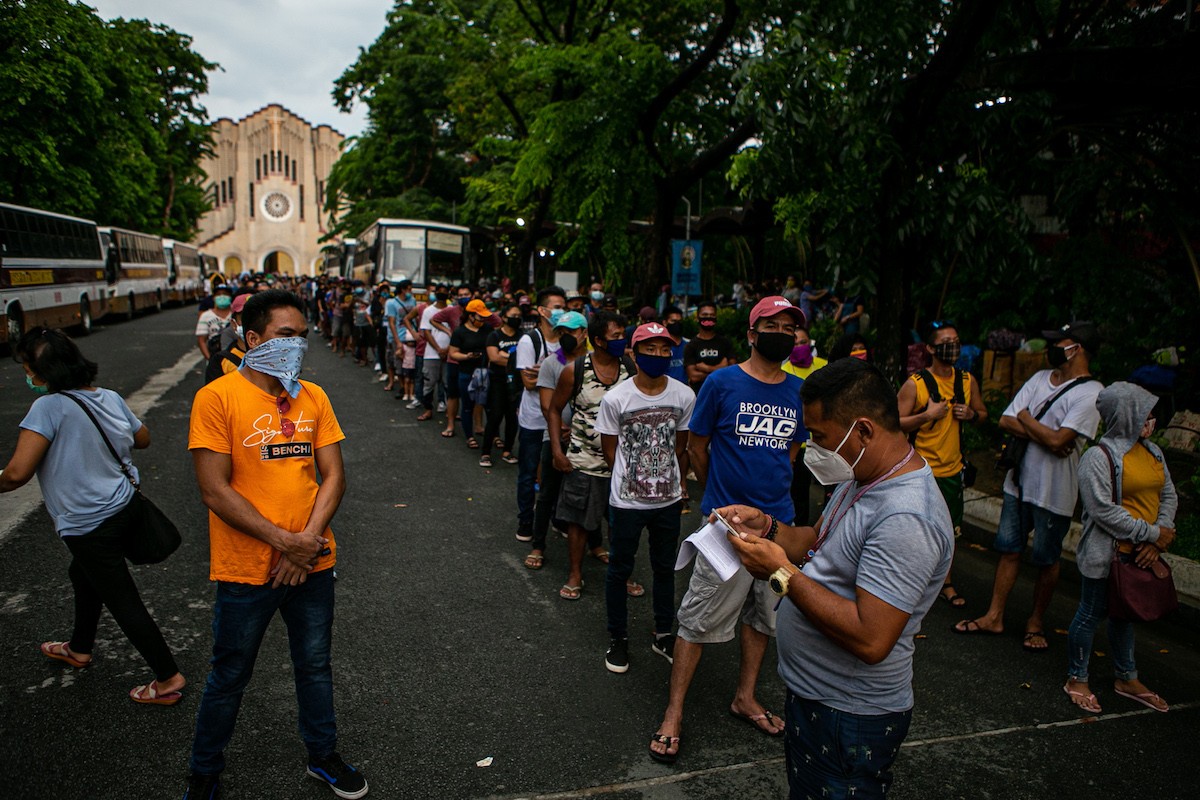It was raining when Ching Guban arrived at the National Shrine of Our Mother of Perpetual Help in the Philippine capital’s Pasay City in the afternoon of May 29.
The church compound was already filled with more than 600 individuals, including children and elderly, who were lined up waiting to board buses for the province.
Guban took advantage of the free bus ride that would bring him home amid the coronavirus pandemic.
“I’ve waited for more than two months for this,” he said.
“There’s nothing here for me anymore because of this pandemic. It is better to go back home,” said the 42-year-old man.
Guban has been working for a construction company in the capital for 16 years.
The company, however, stopped operations in March when the government imposed strict community quarantine measures.
Workers were left in their barracks with minimal support from the company.
“We already run out of money, but we cannot leave the site because of the quarantine restrictions,” said Guban.
He had to ask for money from relatives back home weeks to survive. “No aid from any government agency or institution reached us,” he said.
The displaced workers could not avail of the financial aid program offered by the government because they have no papers to prove they are residents of the city.

Guban said most of the workers come from the provinces and have no permanent city addresses. “We live from one construction site to another,” he said.
Even after the government announced that industries will reopen, Guban said he did not receive notification from his employers.
“It is uncertain if we can go back to work, and if ever the operation resumes we are not sure if the company will cover the expenses to keep us safe from the virus,” he said.
The country’s Department of Labor and Employment said there are more than 2.7 million Filipino workers who have been displaced by the pandemic.
The labor department reported that the capital region has recorded the highest number of displaced workers at 896,020.
Labor Secretary Silvestre Bello III said the number of affected workers could “go as high as five million” because of permanent or temporary business closures.
‘Back to the province’
The local government of Sorsogon province has been providing transportation to its constituents who have been stranded in the capital since the lockdown in March.
In the middle of May, the provincial government sought the help of the Redemptorist congregation for the use of its church compound in Manila as a staging point for people who want to go back home.
“The gates of the church are always open to those who are in need of our assistance, especially in these trying times,” said Father Jose dela Cruz.
At least 1,500 people have already been brought back to their hometowns since the start of the program.
Earlier in May, the national government has initiated a long-term program that aims to convince people working and living in the capital to return to their provinces.

President Rodrigo Duterte ordered the implementation of the “Balik Probinsya” or “Back to the Province” program that aims to “decongest” that capital and “promote countryside development.”
“The uncontrolled upsurge of population [in the capital] brings to the fore longstanding issues on the lack of viable and sustainable opportunities in the countryside, unbalanced regional development, and unequal distribution of wealth,” read the president’s order.
The president said a “balanced regional development program” needs to “be institutionalized” to discourage migration to the cities.
The “Balik Probinsya” program has drawn criticism from various groups that said it is “bound to fail” if the government will not address preexisting socio-economic issues in the country.
Bishop Broderick Pabillo, apostolic administrator of the Archdiocese of Manila, said most of the people who migrate to the cities from the provinces belong to the sectors that do not get government support.
“Most of our people live on agriculture and fishery. These sectors do not get the budget and the services that they need,” he said.
The prelate said the poorest of the poor in the provinces “flock to the urban centers that receive the bulk of services and government attention.”
Bishop Pabillo noted that there have been so many back-to-the-province programs in the past and “they all have failed” because the provinces remain empty of opportunities.
The prelate urged the government and the private sector to “pour massive investment in rural areas” that will provide adequate jobs for the people.
The Trade Union Congress of the Philippines said the government should first “implement a national daily minimum wage” to resolve the disparity between the capital and the provinces.
The group said workers in the capital region receive the highest daily minimum wage of about US$10.64 while workers in the rural areas are paid between US$5.70 and US$8.
“If you do not raise wages in the provinces and make their benefits attractive, it will not last long,” said Alan Tanjusay, spokesman of the group.
“It may be easy to attract many workers to come home during a crisis like this, but once the situation normalizes, they will come back to [the capital] where wages are high,” he added.

The women’s group Amihan said the government “cannot possibly ensure” balanced regional development if it will not implement “genuine land reform, national minimum wage, and the repeal of rice liberalization.”
The group said people in the provinces migrate to the cities because of “landlessness, unemployment, and lack of livelihood opportunities.”
Amihan said the government program to bring back people to the provinces is “anti-poor” and will only displace urban poor communities.
Michael Tan, former chancellor of the University of the Philippines, said the program is “another term for dumping the poor to rural areas.”
Instead of sending them back to the provinces, Tan urged the government to “prioritize” urban housing for informal settlers.
Tan said the government must deal with “poverty” and not just focus on providing subsidy for the people during emergencies.
It was almost nine o’clock in the evening when Guban boarded the bus ride that will take him to Barcelona town.
He told LiCAS.news that the absence of job opportunities in the province was the reason why he came to the capital 16 years ago.







